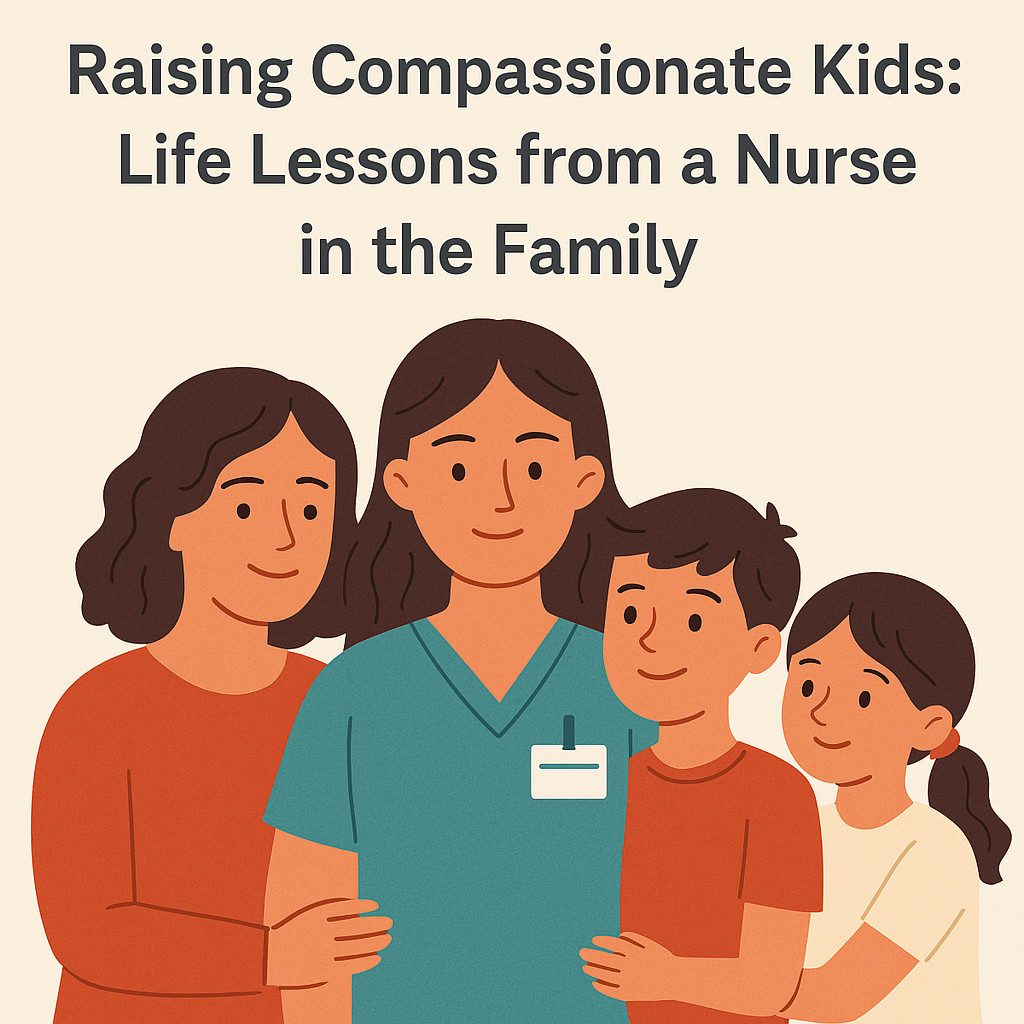Teaching Kids About Food Without Diet Talk: Building a Healthy Relationship from the Start

In a world filled with diet culture, “clean eating” trends, keto diets, caveman diets, carnivores, vegetarians, vegans, gluten free, low-carb, low-fat, low-sodium. I’m low-patience. I want a simple way to eat and talk about healthy eating with our children. I don’t want food guilt disguised as wellness. I don’t want confusing labels that look healthy […]
Raising Compassionate Kids: Life Lessons from a Nurse in the Family

In a home full of energy, laundry piles, and snack crumbs, compassion might not always be the first word that comes to mind. But in our family, it’s become one of our core values—thanks in large part to the quiet, consistent example set by my oldest daughter, always compassionate and now a registered nurse. Having […]
Chore Chart for Kids by Age: Teaching Responsibility One Task at a Time

As a mom of four, I’ve learned that getting kids involved in chores is a game-changer—not just for my sanity, but for their growth too. It’s not always perfect (hello, crooked bedspreads and half-folded towels), but it’s worth it. Teaching kids to contribute to the household gives them a sense of responsibility, confidence, and teamwork. […]
The Lactogenic Diet: Nourishing Your Body to Boost Milk Supply

Breastfeeding is a beautiful and powerful journey—one that connects mother and baby on a deeply primal level. But as rewarding as it can be, many mothers encounter challenges, especially when it comes to milk supply. If you’ve ever worried about whether you’re producing enough milk, you’re not alone. The good news? Nature provides an abundance […]

